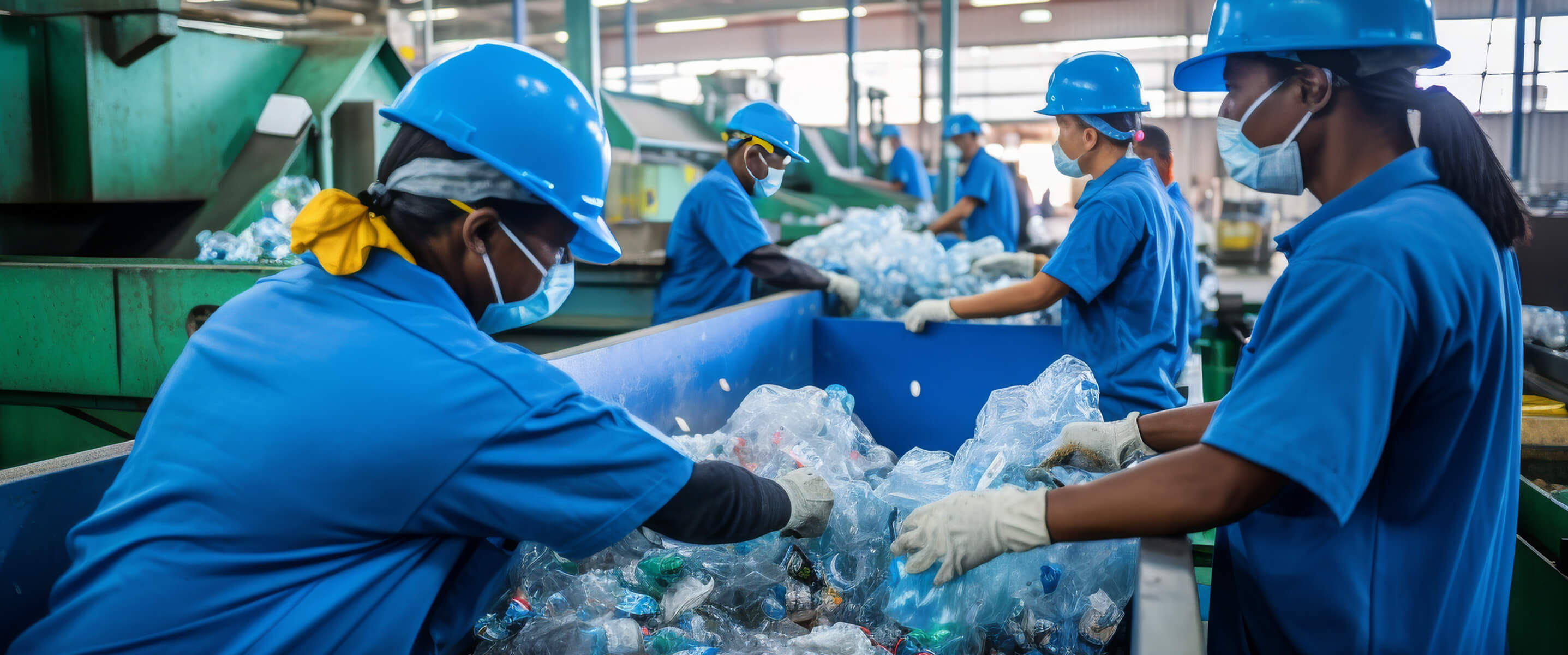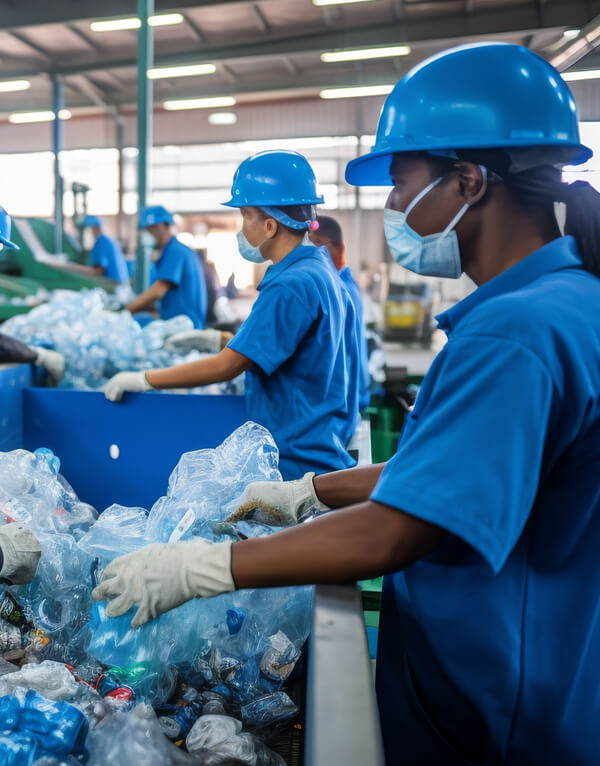Waste Management
Waste management is a crucial aspect of sustainable development, ensuring minimal environmental impact while promoting a circular economy. We are increasingly focusing on responsible waste disposal, recycling, and repurposing materials to minimize landfill dependency.
We have composting plants to reduce waste in an environmentally sound manner. At each asset, we ensure wet waste composting through the biological decomposition of organic waste under controlled aerobic conditions. By recycling our waste, we convert it into valuable organic fertilizer, which is further utilized in landscaping.
Circularity in Waste Management
A circular economy approach prioritizes the reduction, reuse, and recycling of waste. This strategy helps optimize resources, cut down emissions, and lower operational costs while contributing to sustainability goals. We implement efficient waste segregation systems, increase recycling rates, and actively work towards reducing overall waste generation.
As part of our commitment, we ensure that operational waste—ranging from paper and plastics to organic and hazardous materials—is responsibly managed by authorized recyclers. We strive to achieve high diversion rates, reducing the amount of waste sent to landfills.
Hazardous Waste Management
Managing hazardous waste requires specialized handling to prevent environmental contamination and ensure workplace safety. We follow a structured approach that includes:
- Segregation – Identifying types of waste and separating hazardous waste from general waste.
- Storage – Ensuring safe containment to prevent leaks or exposure.
- Disposal – Partnering with certified agencies for safe elimination.
By following stringent guidelines and compliance measures, we ensure hazardous waste is managed effectively, reducing its environmental impact.
Organic Waste Management
Organic waste, such as food scraps and horticultural waste, is a significant component of waste management systems. We utilize composting, bio-digesters, and vermiculture to convert organic waste into useful by-products like manure or biogas. The process typically involves:
- Segregation – Sorting organic waste from non-compostable materials.
- Processing – Converting waste into compost through microbial action.
- Utilization – Using the compost for landscaping, agriculture, or other eco-friendly applications.
By promoting organic waste management, we help reduce methane emissions from landfills and enhance soil quality through compost use.
Construction and Demolition Waste Management
The construction sector generates substantial waste, including concrete debris, metals, and wood. We focus on:
- Reducing waste by proper storage of materials on site
- Recycling materials such as crushed concrete for road bases.
- Reducing waste through efficient material planning.
By implementing advanced recycling techniques, we minimize construction-related waste and lower our carbon footprint.
Moving Towards a Zero-Waste Future
Sustainable waste management is no longer an option but a necessity. By integrating responsible waste disposal, recycling programs, and circular economy principles, we are making a significant contribution to environmental preservation while optimizing resource efficiency.



